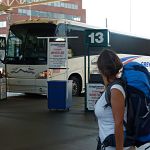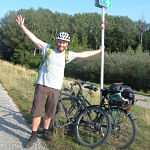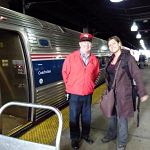FOR THE SOLUTION VIDEO TO THE FIRST CHALLENGE, PLEASE SCROLL TO THE BOTTOM OF THIS PAGE!
The 3-page PDF Lesson plan for students and teachers can be downloaded here
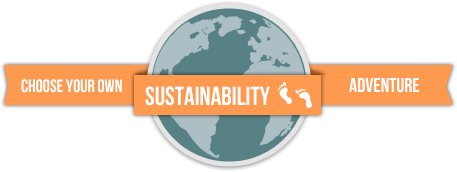 Title of the first Challenge
Title of the first Challenge
From Portland, OR to San Francisco, CA!
Related topic(s)
Mobility, Climate, Health
Introduction
Getting from point A to point B can be a problem and can cause problems for our environment and our social surroundings. For example, it can cause heavy traffic, noise pollution or mean arriving late to an appointment. It can also lead to more emissions of e.g. greenhouse gases, which affect our climate and our health. In addition, what form of transportation we choose to take has direct economic consequences on our own bank account. So how should the environmental, economic, and social costs of different modes of travel best be weighed and balanced in order to choose the most sustainable option? To master this challenge you’ll need to do just that!
Before you start, here’s a quick explanation of what sustainability means:
Challenge
After meeting the American partner class at Harrison Preparatory Academy in Lakewood, WA on September 26th, Matt and Valentina officially start their trip around the world with a bicycle ride to Olympia, WA and then on to Portland, OR, a distance of approximately 130 miles or 210 kilometers. How should they get from Portland to their next major stop in San Francisco, CA, a distance of approximately 700 miles or 1,125 kilometers?
Here are the three options
a) by bus b) by bicycle c) by train
Who will succeed in persuading Matt and Valentina to choose one of the three options? Whoever wants to, and finds convincing arguments, can also suggest a combination of 2-3 of the options (a, b, and c).
It all depends on what you suggest! With your teachers, alone, in groups or together with the other partner schools, choose which mode of transportation Valentina and Matt should use to cover the distance and convince them why they should do what you propose! Your teachers will tell you in what form your argument should be made, for instance as an essay or a video.
When you try to persuade them, remember to cover the three core pillars of sustainability: environmental, social and economic sustainability.
And remember: The more you work together, the more likely that your choice will be selected!
To keep in mind
- Greenhouse gas emissions and energy (e.g. gas, diesel, electricity, calories, …)
- Financial costs (e.g. tickets, possible repairs, food, lodging, …)
- Social advantages and disadvantages (e.g. meeting new and interesting people along the way, health considerations, being able to take a detour, …)
- Cultural opportunities (e.g. is there anything along the way that they should see? How can they best include such opportunities?)
Beyond issues of sustainability, consider how other factors, like weather, luggage, safety, schedule/timing, could be play an important role based on the decision.
Useful information and links
- Greyhound (buses): www.greyhound.com
- Amtrak (trains): www.amtrak.com
- Google Maps provides bicycle routes in beta at: www.maps.google.com
- Weather in the U.S. at: www.weather.gov
- Emissions calculator: www.travelmatters.org/calculator/ (or you can search for emissions calculators to find a different one. Keep in mind that how the emissions are calculated at each site could be very different!)
If you have any questions for Matt or Valentina, post them here (see below) or send us an email! We look forward to hearing what you find out and the journey from Portland to San Francisco!
Valentina and Matt
P.S.: You can follow us on Twitter here: @Forum_ViA!
AND HERE IS THE SOLUTION VIDEO:
Challenge 1: From Portland, OR to San Francisco, CA!
We were pretty nervous as we waited for your answers to our challenge…WHAT WILL THEY DECIDE?
And…we were surprised: no one wanted to send us by bike! 😉 At least not for the long route from Portland to San Francisco! The American class apparently considered a hike all the way during a group discussion based on the argument that it couldn’t be more environmentally friendly than that. However, 1) that wasn’t an option (at least not this time…) and 2) during the discussion it was mentioned that it would take almost a month longer than the other options. Although we aren’t too worried about time, we do need to catch a cargo ship from Argentina to South Africa in May (before winter arrives in the Southern Hemisphere). That means that we shouldn’t spend too much time bumming around the US if we want to experience as much as possible in Central and South America!
But now to our decision regarding your “submissions”:
We will be taking…tadaaa.. a mix taking the bike and the train!
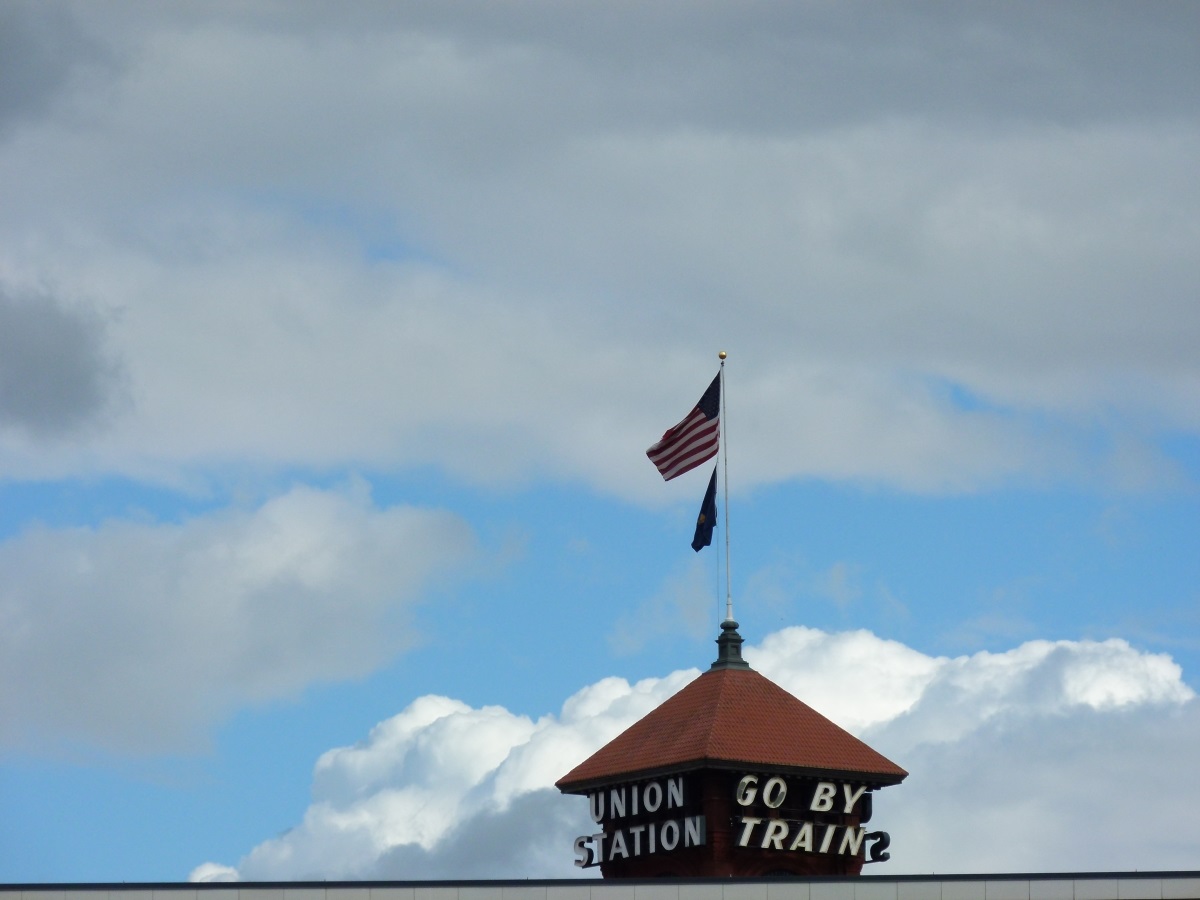 Not only did the majority of you recommend it, but you also found some good reasons why it’s sustainable.
Not only did the majority of you recommend it, but you also found some good reasons why it’s sustainable.
Here are the best arguments broken down among the three dimensions of sustainability:
- Social: Protected from the weather (Retz, Vienna, Lakewood); you can meet more interesting people (cafe and dining cars) (Vienna and Retz); you can get up, move around and stretch your legs, more comfortable (Vienna, Lakewood); the train is quieter (Retz) (the train travels mostly outside of cities); and it gives us the chance to better divide up our energy and time for the “long haul” (Retz).
- Economic: Only the tickets for a seat (not for a sleeper car) are about the same for the train or bus (you found very different prices for buses and trains). But, taking the bikes on the train is easier and much cheaper (good research there Vienna and Retz!). We were lucky and got train tickets for just 86$ per person (so about 63 EUR)*. The train allows more free baggage than in the bus (Lakewood), overnight accommodation is provided in the train (and bus) in contrast to biking (Vienna), and the train is also more comfortable (hopefully) compared to the potentially cramped and hot bus (Vienna). The train is also the fastest option (Vienna).
- Environmental: Both the bus and train – as opposed to personal cars and airplanes – have relatively low CO2 emissions (the bus is actually a little better – good research Lakewood and Vienna! – when the energy used for building the roads and railways is included in the calculation, since this is spread among all users of the roads). On the other hand, buses can be affected by bad traffic, which leads to more CO2 (Retz). In order to save a little CO2 and get a little bit of exercise, we will ride our bikes to and from the train stations in Portland and San Francisco (approx. 1 hour within Portland and 1 hour from Oakland to San Francisco).
Route: Our route will look more or less like what one of the groups in Vienna described in a poster (unfortunately, we couldn’t read the names on the poster).
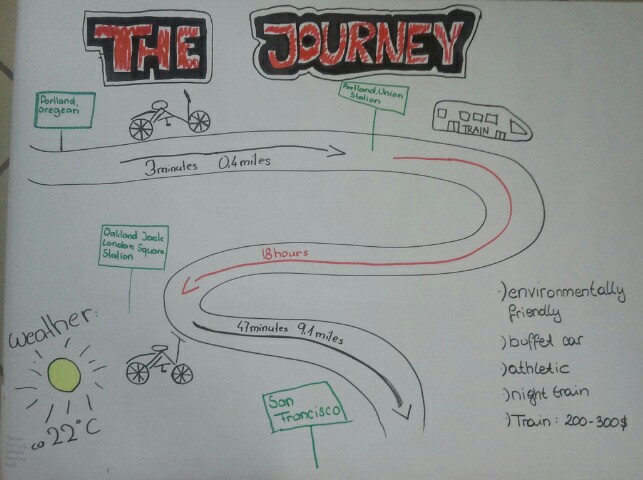 Since you all(!) actually ended up voting to send us with either the train or bus as the main means of transportation, it looks like you were able to accurately gauge our current level of fitness (better than us). It’s really fun to take the bikes – you’re pretty independent and if you’re lucky there are some really nice, quiet bike paths away from the roads, but after three or four hours of riding without stopping for more than a couple minutes at a time, you start to run out of steam and can’t feel certain parts of your body anymore… It’s also a little strange to ride your bike in the breakdown lane of the freeway when there is no other option! Crazy, but we survived. 😉
Since you all(!) actually ended up voting to send us with either the train or bus as the main means of transportation, it looks like you were able to accurately gauge our current level of fitness (better than us). It’s really fun to take the bikes – you’re pretty independent and if you’re lucky there are some really nice, quiet bike paths away from the roads, but after three or four hours of riding without stopping for more than a couple minutes at a time, you start to run out of steam and can’t feel certain parts of your body anymore… It’s also a little strange to ride your bike in the breakdown lane of the freeway when there is no other option! Crazy, but we survived. 😉
We’re excited to see how the 18-hour train ride with only a seat goes (we couldn’t afford a sleeper if we want to stay within our budget), but we’ll document it and let you know how your plan turns out as soon as possible!!!
Until then, thanks again for your responses to the challenge! It’s really cool and motivating for us to get your decisions!
Cheers,
Valentina und Matt
* ) Money: We have planned about 20 EUR per day per person (so about 28$). On some days (e.g. travel days) we will definitely go over that. Other days, for example when we stay with friends or at a campground and we don’t have any travel costs, we will stay well under the 20 EUR. In that way it should hopefully balance out.

